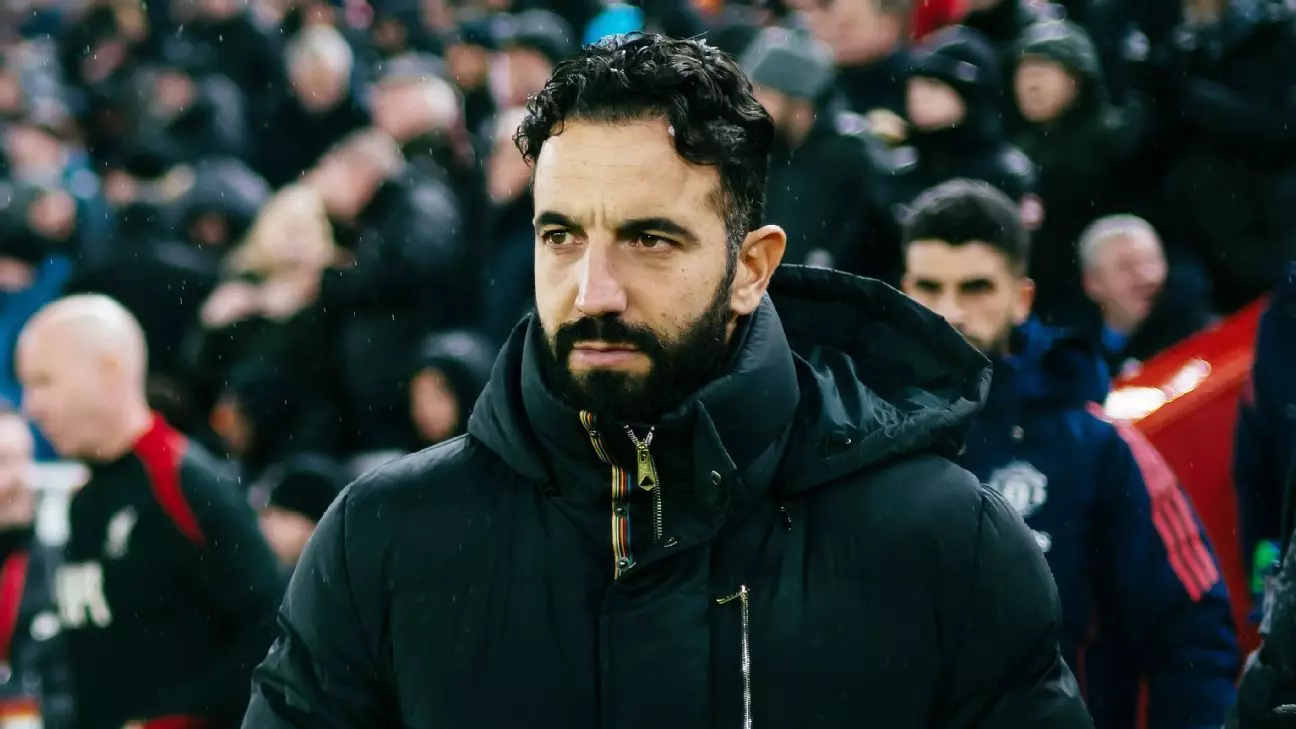Ruben Amorim’s arrival at Manchester United represents a pivotal moment for both the club and the manager himself. Taking over the reins in November following the dismissal of Erik ten Hag, Amorim stepped into a daunting environment characterized by underperformance and sky-high expectations. As Manchester United languished in 14th place in the Premier League, the Portuguese manager faced the monumental challenge of restoring the club’s former glory. His admission that these initial months have been “the most intense” yet “the most special” of his career reflects the complex and high-pressure nature of this assignment.
Much to the alarm of fans and pundits, Amorim’s first encounters with Premier League competition proved challenging, with the team registering six defeats in his first eleven games. This disastrous start marked the worst record for a newly appointed manager at Old Trafford since 1932, a statistic that weighs heavily on any coach. The pressures of the job escalated as losses mounted, prompting Amorim to make a bold statement after a particular setback against Brighton & Hove Albion, where he described his squad as “the worst, maybe, in the history of Manchester United.” Such harsh criticism reveals both the intensity of the situation and the passionate commitment Amorim feels towards rectifying it.
Despite the gut-wrenching losses, Amorim has emphasized the importance of maintaining focus on improvement rather than getting bogged down by league standings. He stated, “There’s no point in looking at the standings right now.” It is this philosophy that encapsulates his vision for the club. The emphasis lies not in fluctuating results but in building a robust foundation for future success. Amorim’s ability to rally the team around a clear strategic direction, even amid frustration, suggests a level of resilience that could prove beneficial down the line.
Amorim recently made headlines for his outspoken treatment of Marcus Rashford, who, after being benched for an extended period, faced direct critique from the manager. Amorim’s readiness to highlight issues with player commitment is indicative of a deeper commitment to fostering a culture where accountability is paramount. By stating, “I will put [63-year-old goalkeeper coach Jorge] Vital on before I put a player that doesn’t give the maximum every day,” he underscores his uncompromising standards.
Far from merely singling out Rashford, this message serves as an exhortation for all players to elevate their efforts. Amorim’s refusal to tolerate mediocrity is vital for creating a high-performance environment, one wherein every player is required to commit fully. It is an approach that speaks volumes about his management philosophy—prioritizing collective success over individual reputations.
While Amorim’s high expectations extend to all players, his strategic re-evaluation of veteran midfielder Casemiro is equally notable. As a seasoned player with a wealth of experience, Casemiro offers a depth of understanding and intelligence on the pitch. However, Amorim has recognized that the physical demands of the Premier League necessitate a style that occasionally may not align with the Brazilian’s current capabilities. “We feel that this team needs high-intensity players at times we don’t have,” he explained.
This acknowledgment resembles a broader trend in football, wherein flexibility and adaptability in player roles are crucial. Amorim’s willingness to innovate, even with stalwarts like Casemiro, indicates a forward-thinking mentality that aims to tailor strategies to the specific demands of different games.
As Amorim navigates the tumultuous waters of his early tenure at Manchester United, his experiences reflect a blend of challenges and opportunities. The intensity of the situation may test his mettle, but his commitment to establishing standards of excellence, promoting accountability, and reevaluating player roles illustrates a manager determined to carve a new path for the club. As results begin to improve, the support of loyal fans and the encouragement from within the team might just provide the foundation for a successful recovery and a brighter future at Old Trafford.

